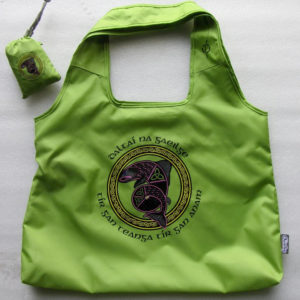A house without a woman is empty [and] cold.
Note: This is not to be confused with the English aphorism, “A woman without a man is like a fish without a bicycle”. The word “man” does not appear in this week’s seanfhocal. It is more a recognition that in Ireland women, traditionally, run the house. “Bean an tí” (the lady of the house, the mistress) made a house a home. The expression, “Bean an tí” is so laden with power and responsibility that it can also mean landlady. It would be an anomaly for a house to be without one. Without one, the turf fire might go out. Without one, the furniture might not exist. Without one, the groceries might not be gotten. Without one, the house would, indeed, be a cold and empty place.
Note also: This week’s seanfhocal has two successive adjectives without a comma and without a conjunction like ‘and’, ‘but’ or ‘or’ between them. “Is folamh fuar é …” This would be grammatically incorrect if it were to occur in an English sentence. However, in Irish, it is actually good form. This is especially true if you want to emphasize something by repeating adjectives that are synonyms, e.g., “Bhí sé beag mion”. (It was small little.) The redundancy would be considered poor style in English. Perhaps this proscription is an expression of British reserve. On the other hand, in Irish, some traits are worth repeating.
